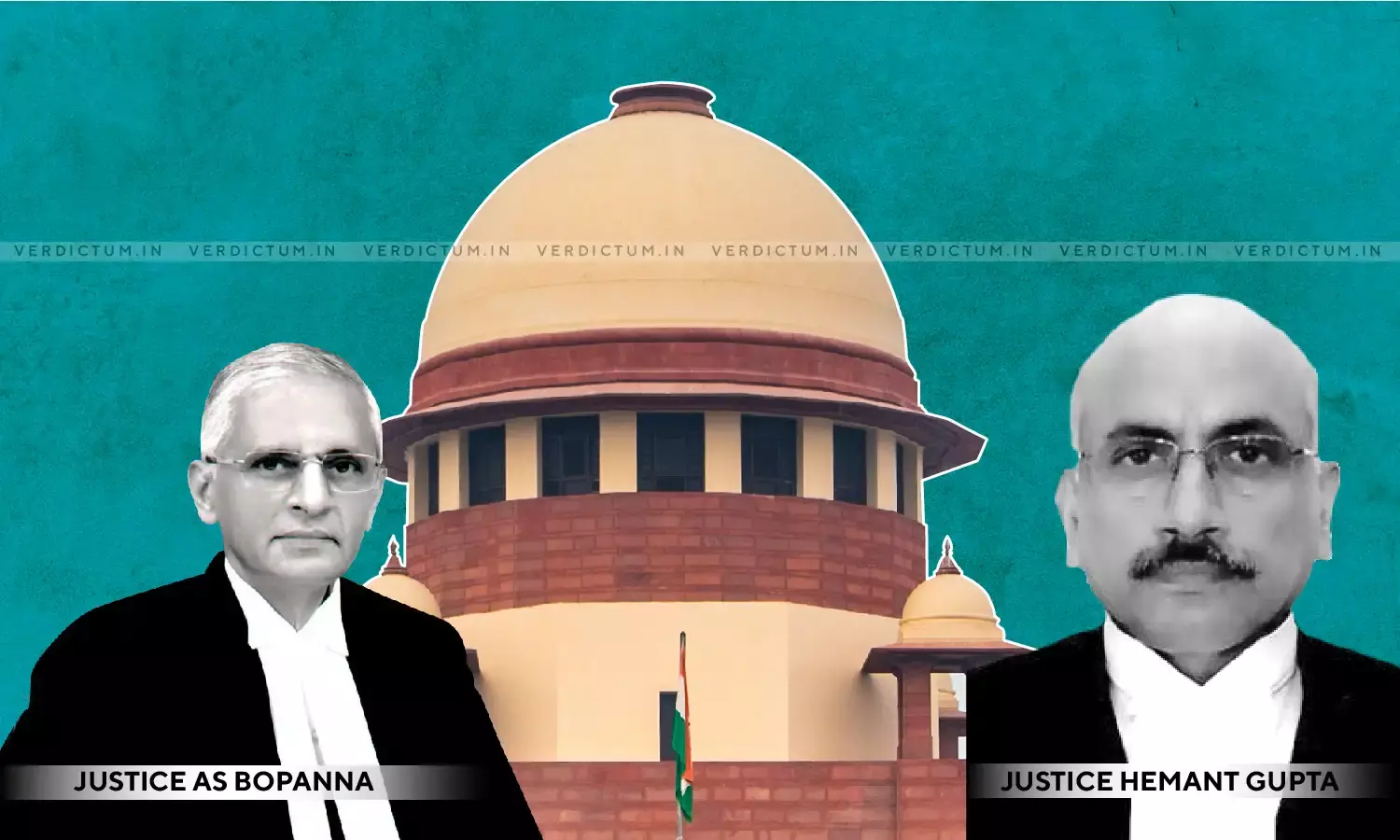The Statutory Tenant Cannot Seek Repossession After The Premise Is Demolished Under Section 108B(e) Of Transfer Of Property Act – Supreme Court

A two-judge Bench of Justice Hemant Gupta and Justice A.S. Bopanna has held that a statutory tenant cannot seek repossession after the building is demolished, under section 108B(e) of the Transfer of Property Act, 1882, as the rights and liabilities of the statutory tenant have to be found under the Rent Act alone.
Appeals were preferred before the Supreme Court against the Judgment passed by the Division Bench of the Karnataka High Court in three Appeals filed before it.
- First Appeal was filed against the judgment and decree passed by the Additional City Civil & Sessions, where the suit of Plaintiff for permanent and mandatory injunction was dismissed
- Second Appeal was filed by the Plaintiff for claiming damages and was found entitled to recover the damages suffered.
- Third Appeal arose out of the first suit where the suit of the Plaintiff was dismissed.
All three Appeals were heard together by the High Court. The Court had dismissed the Appeals arising out of the judgment and decree passed by the Trial Court in favor of the Plaintiff whereas Appeal arising out the judgment in the first suit filed by Plaintiff was allowed.
In this case, the Appellant had filed an ejectment petition and sought the ejectment of the Respondent on the ground that premises were required for bonafide use by the landlord for the immediate purpose of demolishing them and erecting a new building.
A notice under section 322 of the Karnataka Municipal Corporations Act, 1976 was issued by the Corporation on the ground that the building was in a dilapidated condition, unsafe and dangerous. The Plaintiff, by way of a Writ Petition, challenged the notice and secured an ad-interim stay over it by the High Court. The Writ Petition was dismissed by the High Court directing the Corporation not to demolish without passing a final order, to be passed within four weeks.
The building, however, was demolished pursuant to an order passed by the Deputy Commissioner of the Corporation after inspecting the premises. The possession of the vacant land was given to the landlords.
It was argued by the Appellant that the High Court had committed a factual error while passing its Judgment and directing the Corporation and the Appellant to restore the possession in other form to the Respondent.
The Appellant contended that the demolition took place within the time frame and after giving the Respondent an opportunity of being heard, therefore, there was no violation of the order of High Court nor was the building demolished in haste.
While the Respondent argued that there was no clear three days notice was granted to Plaintiff to vacate the premise or resort to any legal remedy.
The Supreme Court after considering the contentions of the parties made the following observations –
- The Court relied upon the case of Shaha Ratansi Khimji and Sons and held that Plaintiff was a statutory tenant and therefore was not entitled to repossession of the premise after it was demolished. "The High Court has returned a finding that the plaintiff was a statutory tenant. In view of the said fact, the remedy of the tenant, if any, has to be found within four corners of the Rent Act and not under the TP Act"
- The Court dismissed the argument of the Plaintiff that notice under section 462 was not issued."Section 322 of the Act is a self-contained provision which empowers the Commissioner for immediate evacuation of the property and any person disobeying such orders was to be removed by any Police Officer. Section 322 of the Act is an independent provision. Therefore, the notice under Section 462 of the Act was not required to be issued," noted the Court.
- The Court opined that both the Rent Act and the Karnataka Municipal Corporation Act operate in different spheres and have different objectives; therefore the High Court had erred in asserting that the Rent Act will prevail over the other.
Based on these observations, the Bench held that the High Court's Judgment is not sustainable. However, the Court ordered the Appellant to compensate the Respondents, legal heirs of the deceased plainfiff with damages of Rs. 5 lakhs.
The Court set aside the Judgment of the Karnataka High Court and allowed the Appeals.

